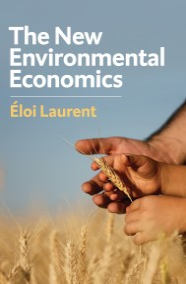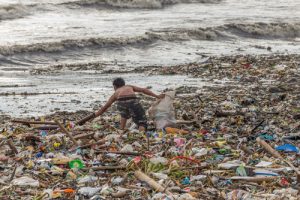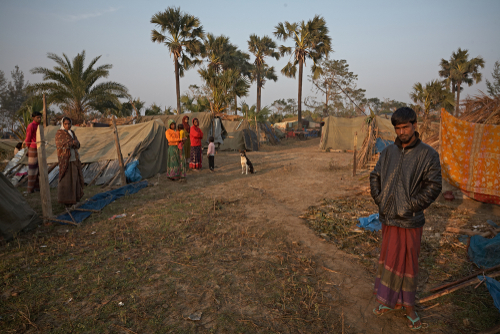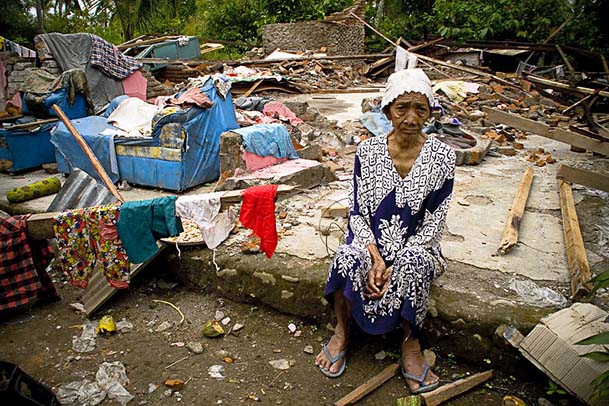


Investigating Street Art in Latin America
13 February 2020Informational Autocrats
13 February 2020 On September 18, 2019, 16-year-old climate activist Greta Thunberg appeared before the U.S. House of Representatives. When asked to submit a written version of her opening statement, she responded with aplomb that she would provide legislators with a copy of the IPCC’s special report, published in 2018, on the impacts of global warming of 1.5°C. “I am submitting this report as my testimony because I don’t want you to listen to me, I want you to listen to the scientists”.
On September 18, 2019, 16-year-old climate activist Greta Thunberg appeared before the U.S. House of Representatives. When asked to submit a written version of her opening statement, she responded with aplomb that she would provide legislators with a copy of the IPCC’s special report, published in 2018, on the impacts of global warming of 1.5°C. “I am submitting this report as my testimony because I don’t want you to listen to me, I want you to listen to the scientists”.
Shortly before, when asked what words she wanted to see printed on the sails of the ship that would transport her across the Atlantic Ocean from Sweden to the United States, she had stuck to a direct message to citizens and decision-makers: “Unite behind science”. Since the beginning of her fight, Greta Thunberg has shown a rare intelligence, courage and determination in promoting climate awareness. But she is wrong on one important point: the nations and peoples of the world will not unite behind science. They will only unite behind justice. This is the argument of the book The New Environmental Economics – Sustainability and Justice (Polity, 2019), which ties knowledge of environmental economics (economics of natural resources and economics of externalities) and ecological economics (economics of sustainability) to the justice imperative. Indeed, the two major crises of the beginning of the 21st century – the inequality crisis and ecological crisis – are actually twin crises: if they are to be fully understood and eventually mitigated, they must be studied jointly.
From an ecological to a socio-ecological transition

Manila, Philippines – August 23, 2017. © aldarinho/Shutterstock
Any meaningful conversation among humans about reform and progress begins with a debate about the principles of justice people want to see upheld and the institutions capable of implementing them. This is especially true of the titanic change in attitudes and behaviors required by the ecological transition. The goal is no less than to save the planet’s ability to remain hospitable for humans. In this respect, the notion of “ecological transition” is misleading: it actually relates to a socio-ecological transition that must be deployed in coming years, since ecological challenges can only be overcome if the social challenges they raise are simultaneously addressed.
The book’s main objective is precisely to show how social dynamics, such as inequalities, cause environmental degradation, and to conversely shed light on the impact of ecological crises such as climate change on social dynamics. Environmental risk is certainly of collective and global concern, but human beings are actors who are socially differentiated by their living conditions. Who is responsible for what and with what consequences for whom? This is the book’s central question.
The most responsible are not the most vulnerable
Why is climate change still not being mitigated? Why is it worsening before our very eyes even though we have, as this book shows, all the scientific, technological and economic tools we need to extricate ourselves from this existential crisis for humanity? It is largely because those most responsible are not the most vulnerable and vice versa.

Kuakata, Bangladesh, January 2008: A group of cyclone Sidr. ©Salvacampillo,/Shutterstock
On the one hand, a handful of countries – around 10% (and a small minority of people and industries within these countries) – are responsible for 80% of greenhouse gas emissions, causing climate change that is increasingly destroying the wellbeing of a considerable part of humanity across the world, especially in poor and developing countries. On the other hand, the vast majority of people most affected by climate change (in Africa and Asia), numbering in the billions, live in countries that bear almost no responsibility for it. Yet these same countries are extremely vulnerable to the disastrous consequences of climate change (heat waves, hurricanes, and floods) caused by the lifestyles of other people living thousands of kilometers away. The entire African continent accounts for around 3% of global greenhouse gas emissions, but its population will be massively exposed to water shortages attributable to climate change in coming decades. Climate justice is therefore key to understanding and eventually solving the climate crisis.
Intergenerational inequalities
What is true in space, between countries, is also true in time, between generations. Thanks to Greta Thunberg and the movement she started, climate strikes and protests are gaining traction and having impact. Some people among the new generations are now aware of the grave injustice they will suffer as a result of choices over which they do not yet have any control. But recognition of this intergenerational inequality is running up against the wall of intra-generational inequality here and now: the implementation of a real environmental transition cannot escape the social challenges of the present, especially the imperative of reducing inequalities. This is the great lesson of the “yellow vest” crisis: the transition will be a just one or will not be.
Repositioning the economy in its environment
Thinking about these issues requires a new economic approach that can give meaning to our world, in which inequalities and ecological crises feed off one another. Sustainability is closely linked to justice: human communities depend on natural ecosystems, environmental issues are social issues, and planetary limitations are human boundaries.
This book therefore embraces two bold imperatives: it is unreasonable (and empirically wrong) to dissociate humans from Nature, and the economy from the Biosphere that contains it; it is unconvincing and ethically dubious to reduce environmental economics to a science of efficiency that eschews distributional analysis and justice politics.
Economics has almost forgotten the environment, inventing a closed-circuit world in which the Sun apparently does not shine, infinite growth is useful and desirable, and all that exists and matters on the planet are households, businesses and governments.
At the beginning of the 21st century, the environment is overtaking economics: climate change has the power to destroy all the world’s economies, including the most well-managed, developed, and efficient ones. There is no economy outside of the biosphere and its biophysical laws. The great natural home that the German biologist and philosopher Ernst Haeckel had in mind when he coined the term “ecology” imposes its laws on the small human household to which Aristotle and Xenophon were referring when they coined the term “economics”.
A senior economist at the OFCE (French Economic Observatory), Éloi Laurent conducts research on sustainable development. Hi current research focuses on the relationship between wellbeing and sustainability, especially the sustainability-justice link (socio-ecological approach).
- The New Environmental Economics – Sustainability and Justice, Polity, 2019
- Sortir de la croissance – Mode d’emploi, Les liens qui libèrent, 2019
- Measuring Tomorrow: Accounting for Well-being, Resilience and Sustainability, Princeton University Press, 2018
- Notre Bonne Fortune-Repenser la prospérité, PUF, 2017



